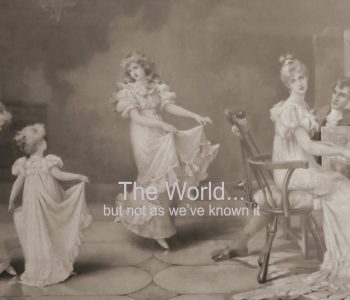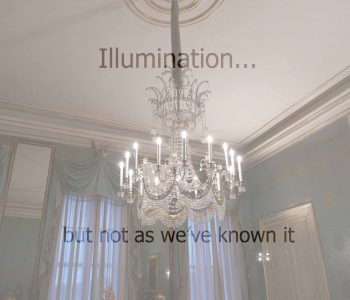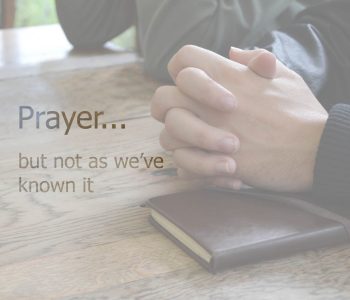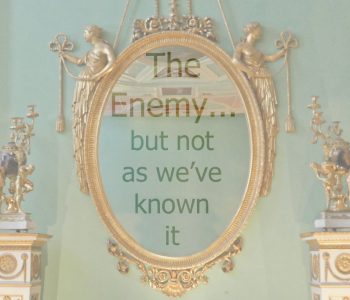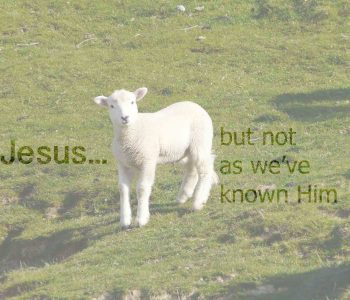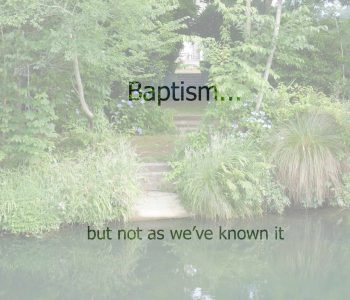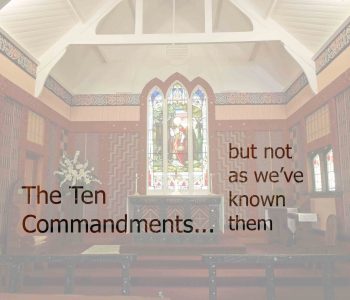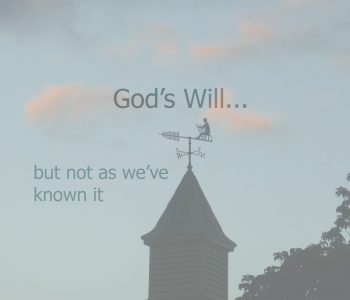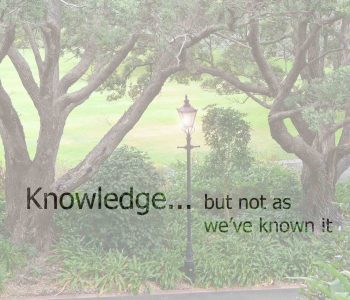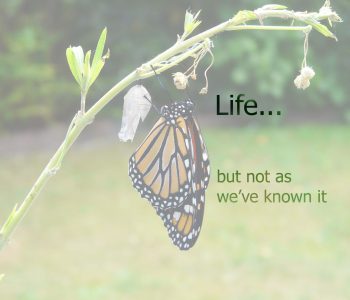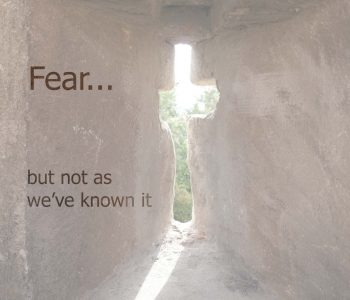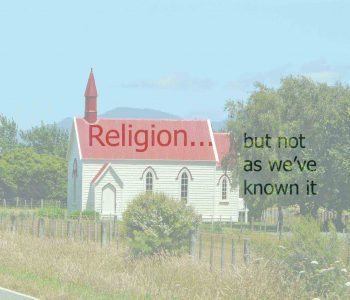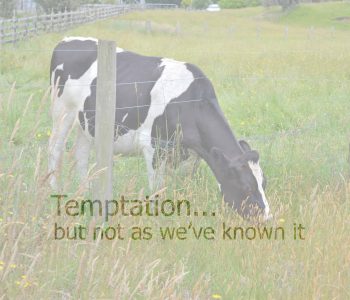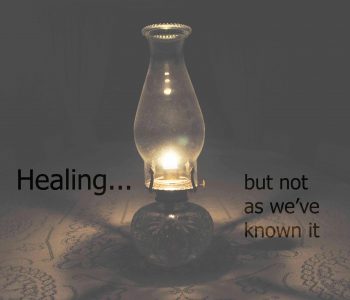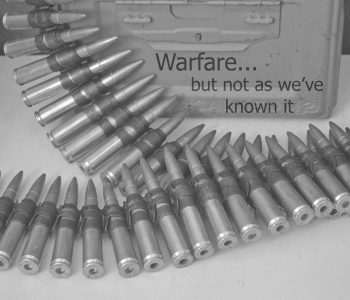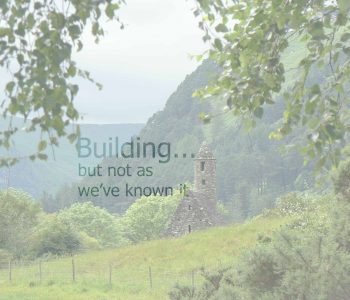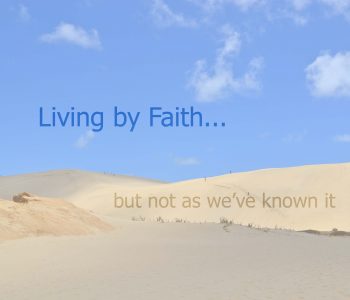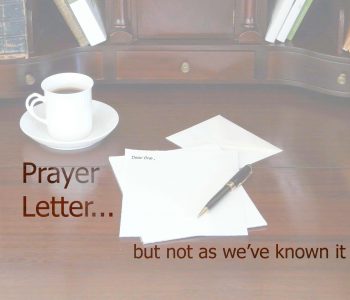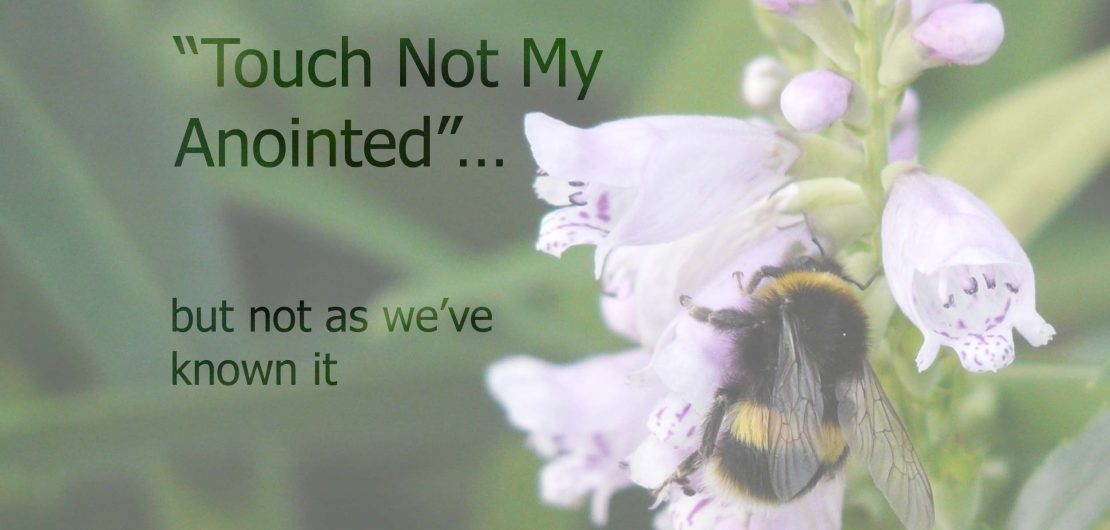
“Touch Not My Anointed”… but not as we’ve known…
The phrase “touch not My anointed” has been abused and misused, often by people who do not want to hear anything negative or convicting. However, Father has been showing me a completely different way of looking at this phrase. Many times we touch God’s anointed ones (His children) without realising it; through our words. Not only with negative words but even through our compassionate, kind words. I was prompted to read the following story, and then Father showed me the importance of speaking from Christ and His nature within me rather than from my own nature.
And they set the ark of God upon a new cart and brought it out of the house of Abinadab, which was on the hill; and Uzzah and Ahio, sons of Abinadab, drove the new cart. And when they came to Nacon’s threshing floor, Uzzah put out his hand to the ark of God and took hold of it, for the oxen stumbled and shook it. And the anger of the Lord was kindled against Uzzah; and God smote him there for touching the ark, and he died there by the ark of God. David was grieved and offended because the Lord had broken forth upon Uzzah, and that place is called Perez-uzzah to this day. 2 Sam 6:3,6-8.
The ark of God was the most sacred piece of furniture in the temple, it was in the Holy of Holies. It was representative of God’s presence and power because it contained some manna, the 10 commandments and the rod. This is what I saw – the ark represents not only Christ, but also His power and presence in His house/temple; which is now each of us as parts of His Body. We each contain Him as our manna (spiritual food – Jesus is our Bread), His laws (which are now written on our hearts instead of being external rules to keep) and the rod (discipline & guidance from Him) – ALL of which originate and come from the Holy Spirit and are in the internal holy of holies or spirit of each of our temples/bodies.
In this story the ark (representing the spirit of a child of God which contains the Holy Spirit) came to Nacon’s threshing floor which is a place of separation where the chaff is removed from the wheat. Nacon’s name means “prepared”. This threshing floor, these difficult circumstances, were prepared and ordained by God for separating and winnowing. When it looked like the ark/person got shaken (was being winnowed) and was in danger of falling, Uzzah reached out and STOPPED it! He presumed that he was doing God a favour, that he was doing what God wanted and he was immediately killed for his presumption because he had interfered with something holy and something that God had allowed to happen!
Uzzah’s name means “strength” and he did this in his own strength, with the strength of his flesh, his own arm. It was NOT of God. It was not God’s compassion or mercy that he was acting from, but rather his own compassion.
Our “Good” Intentions
It is true that our first reaction is usually of the flesh. Good intentions don’t count for a thing; if something originates from our flesh, whether good or bad, then it is unholy and will produce death, not life. “A good intention will not justify a bad action”. Perhaps it was Uzzah’s long familiarity with the ark, since it had been in his home, that brought about his presumptuous act, but that did not excuse it.
And David was offended. The Hebrew word means to be furious; how could God be so lacking in compassion and mercy? After all, Uzzah was just trying to HELP Him! BUT God does not need or want our help when it comes from our own strength. Even fleshly mercy is an unrighteous and unholy thing because it is from us and from our flesh and not from God and His Life! It is the Spirit Who gives life; the flesh conveys no benefit whatever. (John 6:63).
One of the ways in which we learn is by our mistakes. Our natural tendency when we see someone heading for trouble is to try to stop them; or if someone is hurting, to comfort them. Sometimes that is the right thing to do, but sometimes it is the wrong thing to do. Sometimes our Father will want to teach His child something due to the consequences of their actions or words. If we intervene and interfere with that; we are touching something holy, we are touching God’s anointed one.
The reason the ark was shaken in the first place was because it was not being carried in the way that God had specified. David was transporting it on a new cart; but it was meant to be carried on poles on priest’s shoulders; not ever on some man-made device! They had made an exception to God’s rules regarding carrying the ark. Perhaps they had compassion on the men who had to carry it and thought they had come up with a much better idea… BUT it was NOT God’s way! It was the way of their enemies. It had been carried on a new cart by the Philistines, and it had arrived back in Israel on the cart the Philistines had made (1 Sam 6). We are not to follow the ways of the world, even ways which appear to be a good idea.
Our “Good” Ideas
The cart was man’s way of dealing with things but it was not God’s way. At the prepared time and place the oxen stumbled and caused the ark to begin to fall. Perhaps the oxen stumbled over a rock? Jesus is the Rock of Offence and Stumbling Block (Is 8:14, Rom 9:32, 1 Pet 2:8). Yet how often do we see a brother or sister stumble over Who He is or what He reveals to them and then we, in our so-called wisdom, try to tell them that it’s all okay? God USES offence to offend us in order to reveal to us something about ourselves that we do not want to see, but that we NEED to see; it is in fact His kindness that He will try to show it to us. When you are offended; TAKE NOTE! What is the Spirit showing you about yourself? Don’t concern yourself with the person who offended you or become pre-occupied with them, deal with the beam in your own eye. You are responsible and accountable for yourself, not for your brother or sister.
They had just been trying to HELP with the cart idea and Uzzah had just been trying to help stop the ark/person falling, so David got offended and angry at God. God did not appear to recognise how helpful they had all been, after all, didn’t He see their hearts and know that they had His best interests at heart? Didn’t He understand that they had the best intentions and motives? They didn’t want His ark to be damaged! Doesn’t He know how much He needs us to help Him and one another?
This offence revealed pride; it was trusting in the flesh and making decisions and judgments based on what was seen in the natural rather than seeing from God’s perspective or even asking Him what was to be done. David later said “Because you bore it not as God directed at first, the Lord our God broke forth upon us – because we DID NOT SEEK HIM in the way HE ordained.” (1 Chron 15:13). His ways are so much higher than our ways and often totally different than what would appear to be the right way. We do not always know why He allows some things to happen but we DO know that we can trust Him regardless. Sometimes it seems we find it easier to trust Him with ourselves than to trust Him with other people, especially people we love. We tend to respond to our needs or other’s needs instead of responding because God tells us to, but “the need never constitutes the call”.
“It is always a challenge for us to trust Father in both the things we are directed to be involved in and also in areas of which we are aware, yet have received no instructions about. One of the reasons some respond to need rather than to God is that they cannot seem to trust Him to handle a situation without them. Therefore, some sincere and good activity is the result of unbelief; and whatever is not of faith is sin. Think about that!” 1
Unrighteous, human compassion, love, mercy and kindness breed compromise which brings death. Whatever does not originate from Life, will result in death. Human love is selfish and is the opposite of God’s love. It is the fruit of our life, our flesh, rather than the fruit of the Spirit of Life. Unbelievers often exhibit love, joy, peace, kindness, goodness etc, and these fruit LOOK good, but they are from the wrong source if they are from our life instead of God’s Life and therefore will not bring Life no matter how good they are.
An example of this in the New Testament is Peter. Jesus had been saying that He must suffer many things and then die and be raised from the dead. “Then Peter took Him aside to speak to Him privately and began to reprove Him sharply, saying, God forbid, Lord! This must never happen to you! But Jesus turned away and said to him, Get behind Me Satan! You are in My way, an offense and a hindrance to Me; for you are minding what partakes not of the nature and quality of God, but of men.” (Matthew 16:22,23). Peter was so confident of himself and so “wise” that he reproved the Anointed One of God! We may think that we would never do that; and yet we can be guilty of exactly the same thing with Christ’s anointed ones today.
Peter was simply being compassionate and caring; he did not want Jesus to suffer and die BUT he was not feeling or speaking from God’s heart but rather that “of men”. He acted from HIS compassion rather than God’s and Christ saw that Peter was speaking as His enemy! In this instance Peter’s compassion was his weakness; not his strength. If we speak out of OUR compassion, we too can be guilty of preventing or hindering God’s anointed ones from embracing the Cross. A serious offence indeed.
Jesus knew when to have compassion and when not to. We must not ever give grace or license or compassion to things which He does not. He didn’t show much compassion to the Pharisees, or to Martha or even His own parents sometimes! His love was, and still is, TOUGH and will say when something is wrong even if it will hurt. His discernment and wisdom are essential.
Our Foundation
Going back to the picture of the temple, David was told by God to buy the threshing floor and to build an altar there. The temple in Jerusalem was built on the site of this threshing floor. Jerusalem means “foundation of peace”. To us now, as the temple of the Holy Spirit, this says that the threshing floor, winnowing, shaking, separating experiences, are vital and foundational. They are the basis upon which our Father builds His temple and enables it to grow and become strong.
He will baptize you with the Holy Spirit AND with fire. His winnowing fan is in His hand and He will thoroughly clear out and clean His threshing floor and gather and store His wheat in His barn, but the chaff He will burn up with fire that cannot be put out. (Matthew 3:12).
The outer court of the temple is likened to our body, the holy place our soul, and the holy of holies (holiest place) our spirit. In the holy place there was the altar of incense (our prayers), the table of show bread (representing our communion & fellowship) and the lampstand (words of light for us all). Each of these things, while they can be between just God and man, can also be corporate, body functions as opposed to the holiest place which is only between God and His child. In the holy place the lampstand enables us to see one another and we may be asked to tell a brother or sister what we see about them, but it is in the holiest place, the secret hidden place, that God’s words are written on our hearts. It is there that we have communion with Him, it is there that He reveals Himself to us as the Word, Light, Life, Way, Truth; our All. He is the only One who can open our eyes to see and our ears to hear.
That is not to say that we never speak on behalf of God, but typically, we tend to speak from ourselves and from our own compassion and mercy rather than God’s. It will not bring a harvest of good fruit because the source of the mercy is from our fleshly nature rather than God’s holy nature. What is born of (originates from) the flesh is FLESH; and what is born of the Spirit is spirit. (John 3:6).
Our Light
We must speak of what we see from the lampstand’s light rather than the outer court’s natural daylight. The sun is natural light but the lampstand is fueled by oil – the Holy Spirit. We can only truly SEE when we see by His Light – HE is our Light. The holiest place had no source of light, it was a dark place because God is the only Source of Light (Rev 21:23). This seems back to front to us, the darkest place has the Light, but this illustrates that we must not act based upon what we see in the natural from the world’s sun shining on the outer person, but speak and act only by what is revealed to us by the Lampstand in the holy place and by what we see by the supernatural Light of God in the holiest place.
We need to learn to see things from God’s perspective and to speak and act according to His direction rather than our own or because of what we think we should say or do. In the last chapter of John, Jesus prophesied to Peter and told him what would happen in his old age. But Peter, always ready with a question, asked “Lord, what about John?” and Jesus basically told him that was none of his business! It is GOD’s business what He does with each of His anointed ones and we must be careful to speak into other’s lives only when specifically directed by Him to do so.
We tend to compare ourselves with each other and use one another as a measuring stick; but what is important is our Father’s expectations; not other people’s. When they measure themselves with themselves and compare themselves with one another, they are without understanding and behave unwisely. We, on the other hand, will not boast beyond our proper limit, but will keep within the limits God has allotted us as our measuring line and which reaches and includes even you. (2 Cor. 10:12,13). It is the Father that always knows what is best for the children, not the brother or sister!
We must NEVER EVER interfere with the sacred work of the Holy Spirit in a person’s life even though it may be very difficult to stand by and say or do nothing. Other times it can be very difficult to SAY what He says to say and our saying must always be in His timing and in His way. It is a holy thing and we are not the Holy Spirit. We are simply vessels which contain Him and we must learn to speak and act only as He directs and not from our own strength or our own wisdom. Threshing floor experiences are absolutely necessary to separate the wheat from the chaff and it is a holy work. Please carry on separating the holy from the unholy in us Father, purify Your people.
And the Lord Whom you seek will suddenly come to His temple; the Messenger of the covenant Whom you desire, behold He shall come, says the Lord of hosts. But who can endure the day of His coming? And who can stand when He appears? For He is like a refiner’s fire and like fuller’s soap; He will sit as a refiner and purifier of silver and He will purify the priests and refine them like gold and silver, that they may offer to the Lord offerings in righteousness. Malachi 3:1-3
The Threshing Floor 2
by Steve Camp
Separate the wheat from the chaff on the threshing floor
And set aside the first fruits for Your pleasure
From the valley of decision, light the way to heaven’s door
And bring me to the storehouse as Your treasure
When the Master comes with His winnowing fan
To finish the work of refining
Shaping the heart of a righteous man
He’s got to beat it out on the threshing floor.
I said, Separate the truth, from the lie, on this temple site
And bring my risky secrets into the open
The vats are overflowing and the harvest is ripe
But the husk around my heart remains unbroken
When the Master comes with His winnowing fan
To finish the work of refining
Shapin’ the heart of a righteous man
He will beat it out on the threshing floor.
The wheels of His sled are sharp and clean
I feel the weight of His stone as its breakin’ me
He’s shakin’ me down to a handful of grain
And I know by His Spirit that my loss is my gain
When the Master comes with His winnowing fan
To finish the work of refining
I said He’s shaping the heart of a righteous man
He’s gonna beat it out on the threshing floor.
1 Page 125 “Revelatory Adventure” by John Beaumont.
2 Copyright Steve Camp, lyrics used with permission.

